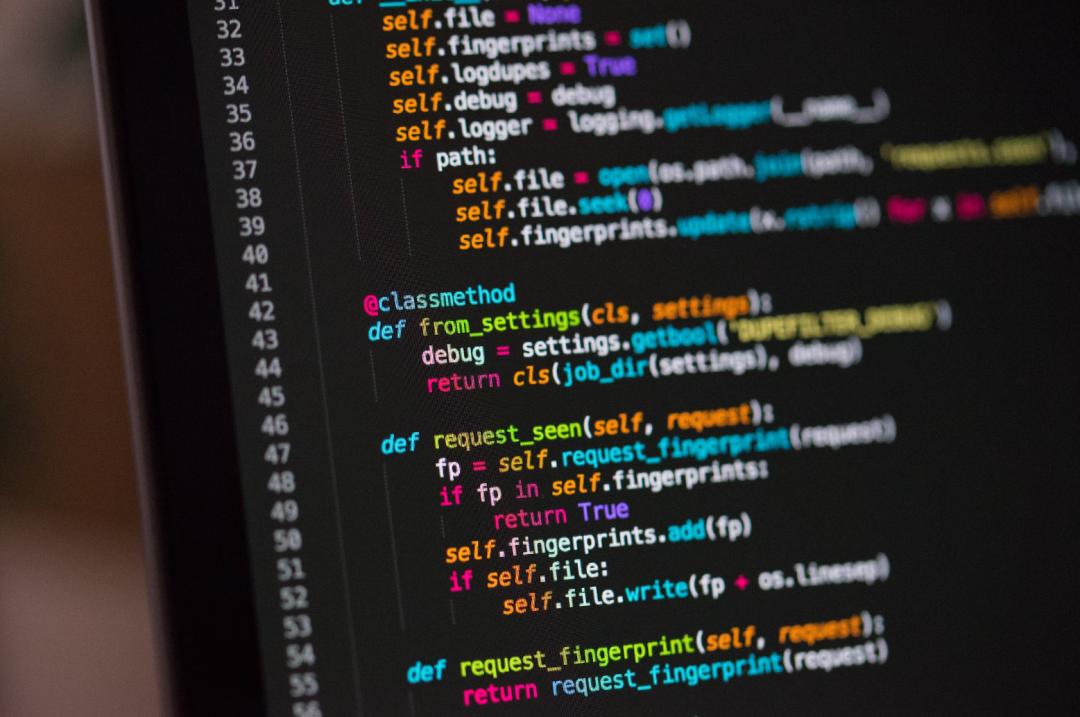Tailoring a New World: The Post-00s Entrepreneurship Wave in AI, Trends, and New Frontiers
-
If not for entrepreneurship, Chi Guangyao would now be a junior in college, preparing for midterm exams. A mysterious phone call in late August 2023 altered the course of his life.
The call was from MiraclePlus, where founder Lu Qi informed him they had secured investment.
At the time, only one week remained before the start of his junior year. He had previously agreed with his co-founder that dropping out to pursue entrepreneurship required meeting one of two conditions: acquiring 100,000 users or securing an investment.
Unfortunately, by the end of the vacation, their user base had stalled at 30,000. But unexpectedly, the second condition was met.
At the age of 20, he took a leave from Shanghai International Studies University to become a full-time entrepreneur, diving headfirst into the AI wave.
The entrepreneurial wave ignited by artificial intelligence is rapidly sweeping across the globe, and Chi Guangyao is one in ten thousand caught in its tide.
This wave originated from the emergence of ChatGPT, sparking the fire of AI large-model entrepreneurship. In Silicon Valley, Shanghai, Singapore, more and more young people are joining the entrepreneurial race, many of whom are from Generation Z (post-00s).
Compared to reshaping the workplace, becoming a CEO and navigating the AI world might be more thrilling for the post-00s generation. Their projects are diverse—metaverse, virtual humans, AIGC, 3D printing... Riding the wind, they have become an undeniable 'new force' in the venture capital scene.
A decade ago, we witnessed the post-90s generation boarding the mobile internet express; today, the post-00s are assembling their own fleets, embarking on their great voyage of discovery.
"If you were to die tomorrow, what would you do today?"
Chi Guangyao was deeply anxious. Before turning 20, he often found himself pondering abstract and intangible questions.
During his sophomore year, he did something that seemed meaningful on the surface: he pulled his GPA up to a perfect score, becoming one of the rare students in his department to achieve this in recent years. However, this accomplishment didn't increase his interest in academics; instead, it made him more skeptical about the value of such knowledge.
He enjoys experimenting with cutting-edge technologies, but finds school curriculum uninspiring. "To be precise, there's a discrepancy between the traditional Chinese path of education-career-retirement and the life I envision—one of unfettered exploration of new things," he explains.
As a self-taught programmer without formal training, Chi Guangyao considers himself technically proficient, capable of transforming an idea into a Minimum Viable Product (MVP) in as little as three days. In January of this year, he spent half of his winter vacation developing a small tool called "Time Tracer." This application records all computer activities and allows users to revisit any past moment, "like riding a time machine."
When he posted about "Time Tracer" on Tsinghua University's forum seeking a collaborator to develop the front-end UI, he didn't attract any partners but instead caught the attention of MiraclePlus (formerly QiJi Venture Capital).
At that time, MiraclePlus was actively scouting for seed-stage startup teams. With Lu Qi, former president of Baidu known as "China's AI Evangelist," as their prominent figurehead, they host biannual startup camps. Selected "alumni" receive $300,000 or equivalent RMB in seed funding.
Hearing about the opportunity, Chi Guangyao became interested and filled out an application form, thinking that perhaps an alumnus could help him develop the UI for his "Time Tracker." At that time, it wasn't about lofty ideals; it was simply for fun.
On March 1st, OpenAI announced the official opening of the ChatGPT API, which Chi Guangyao described as an "earth-shattering event." His eyes lit up: "The power of large models has been released from OpenAI's hands into everyone's hands. We can use it to build applications that will change countless lives in this world."

This ignited a hidden passion within him. That same month, he developed a program called BillyGPT, which allowed people to easily use ChatGPT and enabled developers to optimize prompts. A month later, Zhai Xingji, who had resigned from a leading company, found him through this project. The two hit it off immediately and formed a company the following month, naming it "Language Core."
The exciting journey of entrepreneurship began, though soon after, the duo discovered that someone had registered the trademark a day before them—an early setback. Nevertheless, Chi Guangyao still didn't consider it a major issue. The bigger question was: Where would the money come from?
The call from MiraclePlus came unexpectedly, like a scripted plot twist. After that call, Chi Guangyao secured a $300,000 investment intent and officially applied for a leave of absence from school.
Not everyone possesses Chi Guangyao's determination to burn bridges, a resolve built on his confidence in AI's potential and his own capabilities. More commonly, people explore opportunities while continuing their studies, waiting for the right moment.
23-year-old Shen Zekai originally planned to pursue a PhD in economics. Before starting his master's at Singapore Management University, he stumbled upon VITS, a voice synthesis tool capable of cloning specific individuals' voices, which sparked his interest in artificial intelligence.
Over the past year, he has dedicated all his available time to studying AI. Collaborating with several classmates, he participated in a major model application competition, winning a national third-place prize. This achievement led him to consider continuing the project long-term.
His current focus is on developing an AI assistant for social science research, specifically targeting the subfield of AI-assisted academic writing. The entire 9-member team consists of current university students. He told "Dingjiao" that he would abandon his PhD plans if the project successfully incubates. "There will be many opportunities to pursue a doctorate later, but the current wave brought by ChatGPT might only last these couple of years - it would be a shame to miss it."
This era is full of passionate individuals. The internet has leveled the information playing field, allowing ideas to flow freely and lowering the barriers to entrepreneurship. The explosion of large AI models has particularly stimulated entrepreneurial impulses among more university students.
"For many Generation Z individuals, the initial cost of starting a business is actually quite low. Even if they fail, they can always return to their studies," an investor focusing on Generation Z told Dingjiao.
Zhang Jin, an investor at China Creation Ventures, found through research that more and more young people are starting businesses immediately after graduation or taking a break from studies to do so, particularly those studying overseas or during their PhD programs. She summarized three main reasons:
First, these young individuals have outstanding academic backgrounds, typically from top universities in China or abroad, specializing in fields like computer science and artificial intelligence. They often have access to abundant research resources and internship experiences at major tech companies.
Secondly, the AI industry offers a wealth of open-source models and research papers, enabling small teams to quickly develop and implement solutions with minimal resources.
Thirdly, generative AI is seen as a major paradigm shift, with young people holding strong beliefs in technological innovation and idolizing Steve Jobs-style entrepreneurship.
Whether driven by genuine passion or following trends, the post-00s AI entrepreneurs have indeed arrived.
Will post-00s entrepreneurship be more hype than substance?
Hu Yating, founder of metaverse company AVAR, registered her company during senior year while experimenting with various startups. She created a college community platform that gained rapid campus traction, attracting VC interest. However, upon graduating, she decisively pivoted to AI and 3D technologies, recognizing the dwindling growth space in traditional internet sectors.
This strategic shift stemmed from her firsthand observations as an algorithm engineer. During her internship at ByteDance's TikTok ads algorithm team, she witnessed technology's transformative power - yet also saw diminishing returns when optimizing mature systems where traffic growth plateaued regardless of algorithmic improvements.
As the youngest entrepreneur backed by China Creation Ventures, investor Zhang Jin first noted Hu's intelligence, then her perseverance. Zhang frequently found Hu immersed in coding during office visits. When Hu later proposed Hangzhou as a better development base, the company promptly established a local office and secured regional partnerships within days.
Therefore, when 23-year-old Hu Yating said, 'I want to create something new rather than work within an established system,' investors chose to believe in her.
Shanghai native Ling Tiange's entrepreneurial journey began quite by chance. During his studies at Carnegie Mellon University, amid the severe pandemic, he attended online classes while working on projects with classmates. As a fan of scripted murder mystery games, he decided to bring the game online and even recruited many voice actors to serve as Dungeon Masters (DMs). The most interesting part was a feature similar to a voice filter, allowing players to use AI for voice modulation, which became a hit among post-00s players.
At that time, AI voice modulation wasn't yet popular, and AI-generated Sun Yanzi wouldn't emerge until a year and a half later. During this period, his startup, Gezi Interactive, accumulated extensive voice resources and fully entered the voice technology sector.
Ling Tiange and Hu Yating share many similarities. For example, they are both post-00s, graduated from prestigious universities, started their businesses at 21, and their projects are all related to the metaverse.

The metaverse is a virtual world created using AI technology that interacts with the real world, with Generation Z being its first native inhabitants.
Hu Yating's AVAR generates various 3D and AR content through AIGC, then develops IPs via full-color 3D printing, bridging virtual creation with physical production. Ling Tiange's virtual sound engine acts like an audio "skin" in the metaverse, representing a novel form of content-based social interaction.
These products represent mainstream consumption patterns in the future metaverse and are highly popular among the new generation of 3D natives.
However, at present, there is still a long way to go for such products to enter the lives of the general public. Over the past two years, from the metaverse to Web3, and now to AIGC and AGI, waves of technological advancements have followed one after another, with rapid iterations. Entrepreneurs face intense impacts.
When Ling Tiange first started working on the voice engine, he used traditional voice-changing solutions but found the effects uncontrollable in complex scenarios. Later, he tried AI-based voice methods similar to iFlytek's transcription technology, but the results were still unsatisfactory. By early 2022, the company's funds were running critically low. According to Ling Tiange's statement to "Ding Jiao," the company was "almost dead" at that time.
Ling Tiange faced two choices: one was to save money to pay salaries for the next two months, and the other was to invest the money in marketing. In the end, he chose the latter.
The market always rewards those who dare to take risks. The results of the campaign were evident quickly. Within days, Zhang Xingchen, Managing Director of Source Code Capital responsible for seed-stage investments, reached out to Ling Tiange. He flew from Beijing to Shanghai, and after a one-hour meeting, they finalized an angel round funding of several million RMB on the spot.
With the funds secured, Ling Tiange assembled an AI voice team, built a self-developed transformer-based framework from scratch, and launched the "Big Cake AI Voice Changer." The product was soon applied beyond online scripted murder mystery games and quickly topped Product Hunt after its overseas release. Ling Tiange revealed to Ding Jiao that Grid Interactive generated 17 million RMB in revenue last year and is on track to nearly double that this year.
Most post-00s entrepreneurs have yet to experience such life-or-death, crisis-turning moments, but this is a mandatory lesson for the future—the price to pay for building a new world.
Chi Guangyao has a deeply ingrained sense of crisis. During the first week when Beijing's temperature dropped below 0°C this year, he began hustling for angel-round funding. He told "Dingjiao" that after starting his business, he envisioned the worst-case scenario: being left with just 10,000 yuan, spending 5,000 to buy a van—ensuring at least a place to sleep in winter and avoiding freezing outside.
The large-scale entry of post-00s into the workforce is a recent phenomenon, often stereotyped as "shaking up the workplace" due to their bold personalities. Yet, when interacting with these young entrepreneurs, their rationality, pragmatism, and decisiveness reveal a maturity far beyond their age.
Perhaps, entrepreneurs share similarities—regardless of age.
What truly shapes the traits of post-00s entrepreneurs is their upbringing environment.
It is commonly defined that those born after 2000 are referred to as the "Post-Millennial Generation," and together with those born between 1995 and 2000, they are collectively known as "Generation Z." This is the generation most tightly linked to the digital world and profoundly influenced by smartphones. Simultaneously, as they step into the workforce, they encounter the explosive growth of AI 2.0.
Hu Yating recalls that during middle school, she frequently engaged with platforms like Weibo and Tieba, managing multiple accounts, organizing internet-related activities, and even customizing small items. That period coincided with the boom of mobile internet, where innovative trends emerged endlessly. Now, AVAR creates cultural and creative merchandise for film and TV IPs, collaborates with variety shows to develop trendy collectibles featuring celebrity images—operating with a mindset strikingly similar to those early days.
For Chi Guangyao, gaming opened the door to the digital world. In second grade, playing Plants vs. Zombies, he wanted to earn coins but found himself replaying the same levels repeatedly. He then discovered a tool called CE (Cheat Engine) online, which allowed him to modify the game’s coin count to unlimited, enabling him to buy everything in the store at once. This marked his first encounter with underlying computer mechanics.
By fifth grade, he began using Scratch, learned basic data structures, and developed a game similar to 1942 with classmates. From there, he ventured into "unconventional paths"—learning video effects, embedded development, 3D modeling, and later diving into artificial intelligence during university, working on projects related to large language models.
The entire process was self-taught. He told "Focus": "The efficiency of learning from a teacher simply can't compare to self-learning."
This is a group of natural self-learners who have been "living" on the internet since childhood, possessing a sensitivity to emerging technologies far beyond that of ordinary people.
Hu Yating only started learning programming in high school. Before that, she had been studying art and had little interest in academic subjects. Many teachers hoped she would take the art college entrance exam. Unexpectedly, after a period of programming study, she won a gold medal in the National Olympiad in Informatics and was admitted to Peking University's Computer Science Department.

Starting from scratch with no foundation has never seemed to be a big problem. "There are many ways to learn if you're willing," says Chi Guangyao.
The journey of 21-year-old Dang Jiacheng in founding FlowGPT perfectly illustrates that "product-based entrepreneurship doesn't require extensive experience." FlowGPT has now become the world's largest Prompt creator community with over 3 million monthly active users. From conceiving the idea to launching the product, Dang Jiacheng spent only three days, despite having no prior experience in platform operation or community management. The greatest advantage of youth is the willingness to invest time, learn continuously, and set no limits for oneself.
Gen Z learning is interest-driven. Take Hu Yating as an example - if forced to study something uninteresting, she can't focus at all and might even skip classes. But for subjects that fascinate her, she can study tirelessly every day. Obsessed with design and painting since childhood, she "crossed over" to learn programming in high school out of interest in algorithms, recognizing the fundamental connections between algorithms and design.
Paul Graham, the father of Silicon Valley startups, explains in his book Hackers & Painters why these two roles can be combined—their work is fundamentally a creative process.
Hu Yating described to Dingjiao her process of solving algorithmic problems: first visualizing the framework of the algorithm, forming an overall picture in her mind, and then imagining its data structures and flow. This process is strikingly similar to designing or painting. This is also why AI-generated art is booming today, with computers capable of producing incredibly realistic images.
The openness and interconnectedness of the internet have given the post-00s generation ample space to explore personal interests, creating an exceptional learning environment and fertile ground for growth—something the post-90s generation lacked. Entrepreneurial ideas often emerge in a sudden burst of inspiration while pursuing these interests.
Shen Zekai studied economics for five years while being an avid anime enthusiast. He initially devoted time to researching artificial intelligence simply to create a vocal synthesis of his favorite anime character, and from there, he became deeply engrossed in the field.
Ling Tiange made voice a highlight feature of online scripted murder mystery games because he believes Generation Z youth are prone to emotional fluctuations (emo), and sound can resonate deeply. He describes himself as "a contradictory combination of social needs and social anxiety"—someone who enjoys scripted games, wants more self-expression, yet must confront social pressures. This led to the creation of HALO Scripted Murder Mystery.
Looking at these post-00s entrepreneurial projects, they all revolve around "play." The so-called world-changing and industry-disrupting ideas often begin during the process of play.
"You need to immerse yourself in the post-00s consumer group, understand what they like, and leverage your cognitive advantage of knowing young people," said Hu Yating.
Zhang Jin, who met over thirty post-00s entrepreneurs in the past year, summarized three key traits of this generation: strong educational backgrounds, open-mindedness, and creative management approaches.
In her view, in this wave of AI entrepreneurship, Post-00s, Post-90s, and Post-80s all start from the same point, with Post-00s even holding a greater advantage. Many things are too new, and past experiences cannot be directly reused. Post-00s, unburdened by legacy, have a more direct grasp of new concepts.
Additionally, she believes that the technological and efficiency improvements brought by AI have rapidly lowered the barriers to innovation. However, they have also significantly increased the difficulty for entrepreneurs to judge the "tipping point" of technological breakthroughs and the uncertainty of navigating a rapidly changing market. This is where the sensitivity and agility of Post-00s entrepreneurs give them an edge.
As Chi Guangyao, the youngest entrepreneur mentioned in the article, puts it: Younger brains are less shaped by experience. The older one gets, the more certain parts of the brain are reinforced, leaving less room for plasticity. "Youth is like a blank sheet of paper, capable of creating infinite possibilities."
When 'blank slate' Gen Z starts AI entrepreneurship today, many foundational tasks have already been completed by predecessors.
In 2016, the AI robot AlphaGo defeated the human world Go champion, giving humanity a glimpse into the future of artificial intelligence. This year, OpenAI is leading the charge in general artificial intelligence, heralding the arrival of a flourishing era of native AI applications. A brand-new starting line has emerged—this is the opportunity the era has bestowed upon Gen Z.
Of course, challenges also exist.
Chi Guangyao is still meeting with investors in Beijing, giving himself a maximum of one month. He keeps the cost of each takeout meal to around 15 yuan, and sometimes rides a shared bike for over 40 minutes to reach a destination. One evening during a call with 'Ding Jiao,' it was almost 9:30 p.m., and he was still waiting in a café in Sanlitun to meet the next investor, while his partner dozed off beside him.

"This year's fundraising has been extremely difficult - the entire market is in winter. I'm going back to focus on product iteration," he said.
Fortunately, the product development is progressing well. Various small tools have been developed - some open-sourced, some starting to charge. He aims to build a toolkit collection that uses AI to solve various small needs in people's daily lives. For example, the recently launched CopyAsk functions like a ChatGPT living in your computer's clipboard - you can copy any text in any interface, and this assistant will explain it for you. However, for this paid product, 99.1% of users are just using the free quota.
"I just can't bring myself to charge money," Chi Guangyao spread his hands, still retaining his student-like idealism.
Ling Tiange's father was also a successful entrepreneur, having risen to the position of vice president at a major internet company. His father had a significant influence on him, providing much encouragement. However, as Ling Tiange delved deeper into entrepreneurship, he realized that the loneliness of being a CEO is something only those who have experienced it firsthand can truly understand.
Ling Tiange told 'Dingjiao' that as a child, he was often taken by his parents to meet people they considered impressive, even if the timing wasn't always appropriate. This subtly cultivated his understanding of business and his ability to interact with others.
After starting his own business, Ling Tiange found that he often had to make decisions independently, and sometimes his ideas differed from his father's. For instance, in terms of management, he believes that for companies requiring collaboration, the simpler and flatter the organizational structure, the better. Thus, even with over 30 employees, he hasn't established specialized management positions. He handles hiring and fundraising personally.
These post-00s entrepreneurs have never held formal jobs; they went straight from university to founding companies, missing the experience of complex management structures in large corporations. This means they have to learn many things through practice and find their own solutions to challenges.
An investor commented on Hu Yating: She often makes judgments contrary to common sense. A typical example is that Hu Yating is not the traditional image of a strong CEO. At just 23 years old, her sweet and delicate appearance makes her seem even younger, while some employees in her company have many years of experience at major tech firms. How does she manage to hold her ground?
Hu Yating's approach is to use OKRs. She breaks down tasks into extremely fine details, so fine that they can be directly outsourced, and whoever takes them on has little impact on the outcome. "This makes deliverables very clear and reduces a lot of emotional friction in work," she told Dingjiao. Instead of forcing herself to learn how to be a strong leader, she directly abandons traditional practices and finds a position that suits her better.
Dingjiao observed this trait in many post-00s entrepreneurs: They have their own preferences and won't force themselves into something traditionally considered good. Hu Yating joked, "I suspect if I were to work for someone else, I'd be the post-00s generation 'rectifying' the workplace, because I can't adapt to many fixed rules and evaluation systems—that's why I chose to start my own business."
Each generation of entrepreneurs has its unique advantages. The 80s and 90s generations caught the wave of the mobile internet boom, while the 00s generation is now welcoming the AIGC opportunity. Although this opportunity is still in its early stages, it represents the future. The next wave of great entrepreneurs may emerge from this era.
The world is yours, and it is ours, but ultimately, it belongs to the younger generation.
